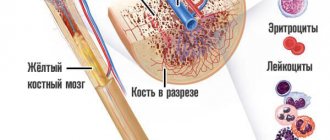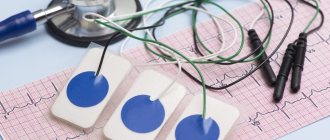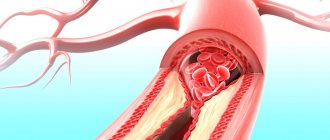Thyroid diseases are in second place in endocrinology. The first is diabetes. According to some scientists, it is not the increase in morbidity that has increased, but the appearance of equipment that provides more accurate diagnosis and detection of the disease at an early stage.
The thyroid gland is an endocrine gland that helps produce hormones. They are directly involved in metabolic processes. These hormones are: thyroxine, calcitonin, triiodoteronine.
The functioning of the thyroid gland is closely related to other organs of the endocrine system (adrenal glands, gonads, pituitary gland, nervous and immune systems). Proper functioning of the gland contributes to the normal functioning of the intellect and metabolism. In addition, if the functioning of the thyroid gland is not impaired, a person’s skin is in good condition, strong bones, shiny eyes, and reproductive function is not impaired.
If swelling appears in the ankle area, dry skin on the knees and elbows, and brittle hair, we can talk not about aesthetic problems, but about signs of thyroid disease.
If the functioning of the thyroid gland is disrupted, almost all processes in the body are disrupted, and most organs and systems of the body are affected. To prevent complications, it is recommended to visit a qualified specialist at least once a year.
The majority of thyroid diseases are called in one word – goiter. The pathological condition manifests itself not only in disruption of the organ, but also in a changed structure. Impaired functioning of the thyroid gland is not always the cause of the altered structure. For example, an enlarged gland may produce an insufficient amount of hormones, while a normal gland may produce an excessive amount.
The influence of the endocrine system on blood pressure
The human endocrine system is represented by:
- pituitary;
- pancreas;
- hypothalamus;
- adrenal glands;
- male and female gonads;
- thyroid.
All these organs are connected to important body systems. Hormonal balance in a person is very important; when it changes in one direction or another, it disrupts the functioning of many organs.
The thyroid gland plays an important role in regulating physiological processes in the body. Affects blood pressure and heart function. When the balance of the hormones thyroxine and triiodothyronine produced by the thyroid gland is disrupted, disorders occur in the human body. Arterial hypertension with complications such as heart attack and stroke occurs more often from them.
Hormones that cause increased blood pressure
Hypertension affects many people, especially older people. In the chronic form of the disease, 0.3% of people with arterial hypertension experience an increase in blood pressure due to increased levels of the thyroid hormones thyroxine and triiodothyronine in the blood. This condition is called an overactive thyroid.
The coordinated work of the gland, heart and blood vessels is immediately disrupted. The patient complains of arterial hypertension, which occurs due to frequent heart contractions and narrowing of the lumen of blood vessels. The patient may feel cheerful, his performance improves, and his thinking processes accelerate. If the pressure rises for a short time, this condition is not dangerous. However, the long-term increase in blood pressure caused by hypertension leads to irritability and restlessness. A person develops a state of panic attacks.
In addition, hyperthyroidism leads to metabolic disorders, which affects the condition of blood vessels. Possibility of atherosclerosis, if carbohydrate metabolism is disturbed - diabetes mellitus.
Excessive production of thyroid hormones has dangerous consequences. After all, high blood pressure leads to fragility of blood vessels and changes in the heart muscle. The patient undergoes irreversible processes, which contributes to the development of heart attack and stroke.
Hormones and low blood pressure
A decrease in the blood level of the hormones thyroxine and triiodothyronine can be a temporary phenomenon when the body reacts to extreme heat, lack of food or water, or poisoning.
Chronic hypothyroidism causes significant damage to body functions. As a result of hormone deficiency, the heart begins to work more slowly and the tension in the blood vessels decreases. Parts of the brain run out of oxygen, and the patient's performance quickly declines. He is constantly depressed. Low blood pressure leads to dizziness and fainting.
It is characteristic that the patient’s body temperature also decreases from normal. Slow metabolic processes lead to loss of appetite, although a person gains weight faster than loses it.
Hypothyroidism
If the cause of the disease is decreased thyroid function (hypothyroidism), it is a hypothyroid goiter. The development is associated with chronic thyroiditis and treatment of thyrotoxicosis. Also, the cause may be a congenital anomaly. Among the signs are the appearance of chilliness regardless of weather conditions, excessive weakness, fatigue, and constipation.
Hypothyroidism is characterized by the development of mental retardation, decreased attention, forgetfulness, and depression may develop. A woman with this diagnosis experiences disruption of her menstrual function and is unable to conceive or bear a child. The skin becomes dry, the fragility of hair and nails increases. The face, shoulders, and legs swell.
If you press on the swollen area, a hole will not appear and the skin will not gather into a fold. This phenomenon is called myxedema (a mucous, mucopolysaccharide-rich substance accumulates). Swelling of the tissues causes damage to the sensory organs - vision, hearing are impaired, the voice is low, the person begins to snore at night. Among the external signs one can highlight the presence of a round moon-shaped face, dry pale skin, and sparse hair.
Hypothyroidism is a common condition where insufficient amounts of thyroxine are produced. This situation is dangerous due to serious metabolic disturbances. If you contact the clinic in a timely manner, this can be quickly corrected using modern means.
Symptoms of high and low blood pressure
The endocrine nature of pressure changes in an ascending or descending direction can be determined by a number of symptoms. The patient was diagnosed:
- changes in heart rhythm - tachycardia or bradycardia;
- discomfort in the chest area;
- increased or decreased body temperature;
- migraine;
- mood swings;
- shortness of breath;
- fatigue;
- unmotivated depression.
These symptoms cannot be ignored; you must urgently visit an endocrinologist and check the amount of thyroid hormones in the blood. The malfunction of this organ affects the condition of the heart and blood vessels. Therefore, there is no need to postpone medical examinations.
How do thyroid diseases manifest?
The emotional state is disturbed. Hypofunction of the thyroid gland causes the production of serotonin to decrease. A person becomes sad for no reason, apathy develops, excessive fatigue appears, and there is a lack of energy. Hyperfunction manifests itself differently. The person becomes irritable, aggressive, and performance decreases.
Thermoregulation is impaired. Due to disrupted hormonal levels, thermoregulation processes are disrupted. Hypofunction is characterized by chills, chilliness, cold hands and feet. Hyperfunction manifests itself in heat and increased sweating.
Body weight fluctuates. Even if the person did not change his diet or start doing physical activity. A change in weight in one direction or another indicates a malfunction of the thyroid gland. With hypofunction, weight increases, with hyperfunction it decreases sharply.
Digestion and muscle tone are impaired. Hypofunction is characterized by constipation and flatulence. The reason is muscle weakness and atony. In addition, the activity of the gallbladder is disrupted. The bile stagnates and stones begin to form. Hyperfunction manifests itself in diarrhea, as muscle tone is increased.
Hair falls out, skin and nails change. With hypofunction, the skin becomes excessively dry and flaky. Nails break and skin may become yellowish. With hyperfunction, the skin thickens (elbows, feet), spots appear.
The temperature decreases or increases for a long time. With hypofunction, body temperature is reduced, with hyperfunction it is increased (from 37 to 37.6).
Presence of ophthalmological symptoms. Hyperfunction is the reason that a person begins to blink rarely, and lacrimation increases due to dry mucous membranes. Also, photophobia and bulging eyes develop. The thickening and growth of fatty tissue behind the eyeball causes protruding eyes.
Menstrual irregularities. Hypofunction is characterized by scanty discharge. In some cases, amenorrhea occurs. Hyperfunction is manifested by constant failures and irregular cycles. Any situation makes it difficult for a woman to conceive a child. If pregnancy does occur, there is a high probability of developing complications during pregnancy.
Libido decreases and potency is impaired.
Feelings of discomfort in the throat, swelling of the neck. In most cases, a person has problems with swallowing, the timbre of the voice changes for no reason, it becomes hoarse. In addition, there is a feeling of a lump in the throat, the neck becomes asymmetrical. The presence of such symptoms indicates that the thyroid gland is enlarged or nodes have appeared in it.
The heart and blood vessels are not functioning properly. Hypofunction is characterized by the development of bradycardia, decreased blood pressure, and shortness of breath even with the most minimal exertion. Hyperfunction causes rapid heartbeat, high blood pressure, pain in the chest, compression of the heart, and pulsation of blood vessels in the neck. The combination of such symptoms is called thyrotoxic heart. A person can hear the beating of his own heart.
Eyelids and face swell. These symptoms appear mainly at night. The disappearance of swelling occurs in the morning or afternoon. Hypofunction causes the heart muscle to change, blood flow slows down, metabolic processes are disrupted, resulting in swelling.
Muscles ache, limbs become numb and tingling. Such signs are associated with altered protein metabolism and reduced muscle volume (hyperfunction). With hormonal imbalance, the conduction of nerve impulses is disrupted, which provokes tingling.
Osteoporosis develops. Disturbed calciotonin synthesis causes changes in calcium-phosphorus metabolism, as a result of which there is not enough calcium in the blood, or it begins to be poorly absorbed. In humans, bones become brittle, joints hurt and become deformed.
Frequent headache, dizziness. Such symptoms are directly related to surges in blood pressure; vegetative-vascular disorder occurs due to hormonal failure.
If one or more symptoms appear, you must contact the clinic to donate blood for a TSH test. After receiving the results, the doctor consults the patient and adjusts further treatment.
Causes that lead to malfunction of the thyroid gland
Among the main reasons leading to dysfunction of the thyroid gland is iodine deficiency in the body. A deficiency of this substance occurs as a result of:
- Iodine deficiency in the food we eat;
- radioactive exposure;
- use of oral contraceptives;
- bad habits.
The thyroid gland stops working normally due to poor environmental conditions and frequent stress. If a person is constantly sick with autoimmune or infectious diseases, the gland produces more or less hormones. Heredity also plays an important role in endocrine dysfunction.
What hormones are produced by the thyroid gland?
Information from the outside can influence the nervous system. For example, this happens during hunger, danger, fear. The information received is analyzed by the hypothalamus. The pituitary gland and hypothalamus interact with each other. The pituitary gland promotes the production of thyroid-stimulating hormone (TSH), and directly controls the functioning of the thyroid gland. With hypofunction of the gland, TSH increases, with hyperfunction it decreases.
The thyroid gland is responsible for the production of thyroxine, triiodoteronine and calcitonin. In addition, it helps maintain a constant environment and self-regulation in the body.
Metabolic and energy processes are regulated by thyroxine and triiodoteronine. The role of calcitonin has not been fully studied, but in total it is responsible for ensuring that a normal concentration of calcium is present in the body. It, in turn, is an important condition for the normal functioning of the musculoskeletal system.
Stages of thyroid lesions
Thyroid dysfunction manifests itself in different ways. There are a number of diseases of the endocrine system, among which the most common can be listed:
- goiter of endemic and sporadic type;
- Hypothyroidism and hyperthyroidism with excess or insufficient production of hormones;
- inflammation of the gland - inflammation of the thyroid gland in acute and chronic forms;
- open and closed injuries;
- Congenital anomalies of the thyroid gland.
As the thyroid nodules enlarge in the first stage of development, the symptoms become mild, but over time the thyroid gland grows, which leads to cancer.
And persistent viral infections lead to an enlargement of the thyroid gland. The malaise begins with a sore throat. But if the patient is irritable, has excessive sweating and trembling in his hands, the inflammation has moved to the thyroid gland and subacute thyroiditis develops.
Among autoimmune pathologies, Hashimoto's goiter deserves attention as a consequence of chronic infections. Failure of the immune system leads to the destruction of gland cells, hypothyroidism. This disease is hereditary and difficult to treat.
Timely diagnosed diseases of the endocrine organs will prevent complications and not lead to disastrous consequences.
Hyperthyroidism
If the cause of goiter is increased thyroid function (increased amount of thyroid hormones), it is called diffuse toxic goiter, or hyperthyroidism. Symptoms are similar to thyrotoxicosis. Among the characteristic signs are sudden weight loss, disrupted functioning of the gastrointestinal tract (more frequent stools, nausea and vomiting). In addition, the person becomes irritable, his sleep deteriorates, he often has a headache, and dizziness appears.
External signs of hyperthyroidism are the presence of shiny, protruding eyes, a person’s hands tremble, and a goiter is visible to the naked eye. Also, there is an increase in heart rate, an increase in systolic pressure and a decrease in diastolic pressure. Arrhythmia may develop. In most cases, there is a sharp pain in the muscles.
Diagnosis of thyroid hypertension
When a patient complains of a persistent increase in blood pressure, which does not decrease even when taking potent medications, he is referred for diagnosis of thyroid diseases.
Laboratory diagnostics
A blood test for the amount of hormones is important because with its help we find out the condition of the gland. The test also shows the presence of antibodies to thyroxine and triiodothyronine receptors. They may be present in toxic, diffuse type of goiter and its progression.
A blood test for hormones is necessary for those who are at risk of pathology. On the eve of the procedure, you should not take medications containing iodine and iron. Coffee, alcoholic drinks, and smoking are prohibited before the test.
Based on these studies, preliminary conclusions were drawn. To confirm the diagnosis, they are sent for a thorough examination of the gland using modern devices.
Instrumental diagnostics
Diagnosis of the thyroid gland includes:
- Ultrasound examination of the organ. After examination, pay attention to the shape of the organ and whether its size has changed. Using the method, fillings and thyroid tumors are detected.
- Radiological examination. The size of the gland, its parts and the structure of the tissues are determined from the image on the screen using a special sensor that is placed around the neck in the area of the organ.
- X-ray. The rays penetrate deep into the tissue, determining the location of the gland when it is covered by a goiter. Using this method, tumors and cysts can be detected and their structure determined.
- Scintigraphy or research using radioisotopes. After administering a special substance, the device will show what the thyroid gland looks like, whether there are tumors on it and what type they are.
Careful diagnosis leads to the selection of effective treatment methods. By eliminating the cause of hypertension, doctors allow the patient to experience the taste of life.
Treatment methods for gland diseases
Thyroid diseases cannot be treated alone. Only a doctor will prescribe appropriate medications and treatment:
- Symptoms of an overactive thyroid gland are treated with propylthiouracil to stop the synthesis of hormones. A similar remedy is the drug Metamizole.
- In combination with antithyroid drugs, iodine-containing products such as iodomarin or iodide are prescribed.
- If a viral infection has affected the thyroid gland, non-steroidal drugs are prescribed, the action of which is aimed at eliminating inflammation and pain. Encortone, a synthetic steroid hormone, is also effective in relieving symptoms.
- Radioiodine therapy is necessary to reduce the size of the thyroid gland.
- Surgery is used to remove the goiter and nodules.
- If the goiter is non-toxic, it is sufficient to treat it with radioactive iodine.
- Among folk remedies, white teapot root is used as an addition to the main therapy. The prepared tincture is taken 30 drops per day for up to a month.
- To improve gland function in hypothyroidism, apply microwaves to the front of the neck or adrenal glands.
- Iodine electrophoresis for 15-20 minutes is also recommended. General ultraviolet irradiation, physiotherapy and massage help stimulate the gland.
By eliminating thyroid dysfunction, it normalizes blood pressure and normalizes heart function.
Disease Prevention
Prevention of endocrine system diseases is available to all of us if:
- avoid stressful situations;
- control iodine content in the body;
- Include iodine-rich foods in your diet: sea fish, seaweed, herbs and vegetables;
- Take multivitamin complexes, especially in the off-season;
- Treat colds in a timely manner, do not wear them on your feet;
- Regular hygiene of the oral cavity and nasopharynx, as foci of chronic infections;
- Give up bad habits.
A person’s life and health depend on the condition of the thyroid gland. Therefore, it is necessary to ensure that this organ is not damaged by injury or poisoning, and that the body always has enough iodine for the functioning of the thyroid gland.
Why does thyroid function deteriorate?
Stress. Prolonged or regular stress has a negative impact on the brain, which, in turn, can send incorrect signals to the thyroid gland. In addition, any disruption of the gland, which is caused by another reason, is a provoking factor of stress. A person's emotional state deteriorates. In such a situation, it is necessary to determine whether a thyroid gland failure caused stress or a stressful condition led to organ failure.
Food. The thyroid gland is strongly affected by any toxic load. Therefore, foods that contain preservatives, nitrates, pesticides or other toxins can cause dysfunction. In addition, food not rich in vitamins, minerals, proteins, fats, carbohydrates can cause the gland to begin to produce hormones in insufficient quantities.
For normal functioning of the thyroid gland, iodine is necessary. The daily amount of iodine that should enter the body is about 200 micrograms. You can get it from food. It must only be organic. You should eat seaweed, sea fish, seafood, persimmons, and walnuts. The iodine contained in salt is not absorbed by the body. And if the salt is heated, it evaporates. It should be remembered that for the absorption of iodine, selenium and zinc must be present. Regular cabbage and all its varieties help bind iodine.
Drink. Synthetic energy tonic causes depletion of a certain part of the brain and adrenal glands, as a result of which the functioning of the thyroid gland is disrupted.
Viruses and parasites. In the presence of herpes, cytomegalovirus, streptococcus, staphylococcus, the functioning of the thyroid gland is greatly impaired. This is explained by the anatomical location of the gland. The tonsils are located next to the thyroid gland. With tracheitis, sore throat, sinusitis, pharyngitis, tonsillitis, the infection also penetrates the thyroid gland.
Bad habit. Abuse of alcoholic beverages, smoking, and toxic substances contribute to an increase in the toxic load, as a result of which the thyroid gland is endangered.
Sex hormones. A decrease or surge in estrogen provokes a change in the structure of the organ. The thyroid gland becomes more sensitive to TSH. Not only the size, but also the structure of the thyroid gland and the production of hormones depend on this hormone. Women over 50 should undergo regular hormone testing.
In case of strong radiation or prolonged stay in a place where the level of radiation is increased.
If there is not enough physical activity. This factor is not direct, but rather indirect. Failure to maintain an active lifestyle causes the blood to become thicker and less oxygenated. As a result, redox processes are disrupted.








